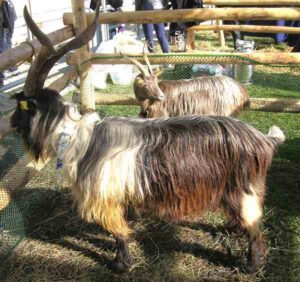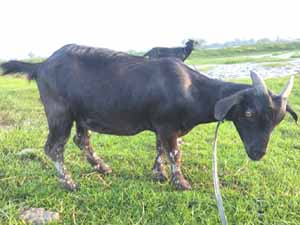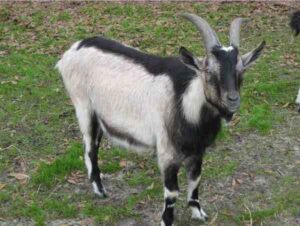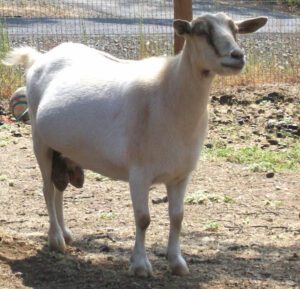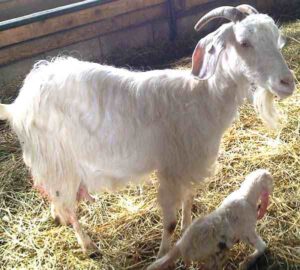Do you know why do goats faint? If no, you are in the right place. Here we are going to discuss more about the causes of fainting in goats. In short, concern is the main causes of fainting in goats. Fainting also could be cause for concern in humans and some other animals. But fainting is normal in the case of myotonic goats.
In myotonic goat faints lasts for about 10 seconds. They lose control of muscle function and thus balance and these small goats actually don’t lose consciousness. However, read more information about why do goats faint, or the causes of fainting in goats.
Why Do Goats Faint?
Goats can faint for many different reasons. Some goats faint mainly because of a muscle problem. Some goats typically faint when their muscles get stiff, especially when they get scared, and they fall down suddenly. When they faint, they actually do not sleep or get hurt, and they can move again after a few seconds. Fainting is also a normal behavior in some specific goat breeds.
Causes of Fainting in Goats?
Fainting is an odd phenomenon to see one literally fall in to the state. But usually a goat who suffers from fainting can live long, full life without major problems. So, there is nothing important to worry about. Here we are describing the causes of fainting in goats.
Fainting is Not a Disorder
Fainting is not a disorder. The term ‘fainting’ is not exactly appropriate. Because that suggests changes in heart rate, respiration or other involuntary functions that could prove life-threatening.
Goats fully recover the condition and none of these changes occur in the fainting goats. As expected, the more muscular the goats are, the more severely they are affected by this genetic abnormality.
Myotonic Goat
Myotonic goats are also sometimes known as fainting or wooden leg goats. Two domesticated varieties exist and they are indigenous to the United States. The larger ones reside in Texas.
And the Tennessee goats are meat goats and are smaller in size. Conflicting tales regarding the origins of the fainting gene exist. But congenital myotonia is thought to be caused by a spontaneous genetic mutation.
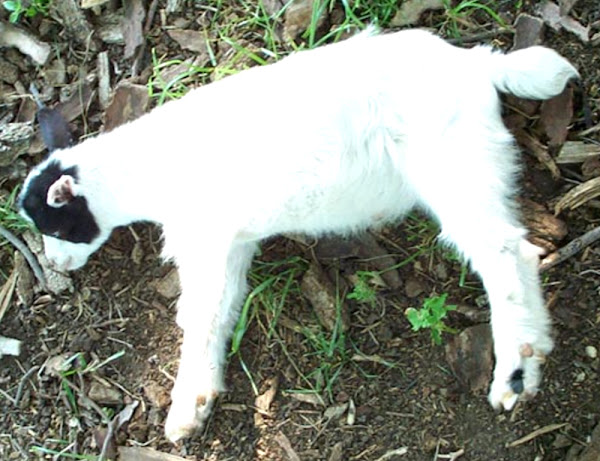
Myotonia Congentia
Myotonia congentia is the neuromuscular result of a spontaneous mutation in an autosomal dominant gene. That means in order for the gene to pass to the offspring, only one parent needs to carry the trait. Essentially, when excited or panicked, signal for the ‘flight and fight’ response never make it to muscle fibers.
And then the goats are left paralyzed. Approximately after 10 seconds (as soon as the stress response is complete), the goat fully recovers. As the trait causes no long-term health consequences, so it is not considered as a genetic disorder.
What Happens When A Goat Faint?
The muscles of a myotonic goat are temporarily stiffen and lock up when the goat is startled or excited. This muscle stiffness can cause the goat to fall over or become immobile for a few seconds. The goat do not sleep or get hurt, and it remails fully conscious during the episode.
Why Fainting Happens?
Fainting happens due to a genetic mutation that affects how the goat’s muscle cells handle certain ions (especially chloride ions). And it lead to delayed muscle relaxation after contraction. Fainting is actually not painful or harmful to the goat and it usually resolves in a few seconds.
Adapting Fainting Goats
Despite the abnormality of myotonic goats, they are known for even muscular bodies, general genetic fitness, temperaments and parasite resistance. As a result of this, these goats continue to be bred for a great food source and as pets. While juveniles struggle with the unexpected fainting, it seems adults have a better grasp of preventative measures. Adult goats will often lean against other objects to remain standing or splay their legs in order to prevent falling over.

